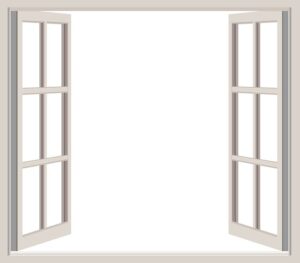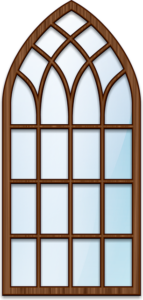Optimizing Home Comfort & Savings with Energy-Efficient Window Replacements
When upgrading to energy-efficient windows, it's crucial to consider factors like frame materi…….

When upgrading to energy-efficient windows, it's crucial to consider factors like frame material, glazing options, and U-value for optimal heat retention and energy savings. High-performance windows with low U-values, double or triple panes filled with argon gas, and coatings that reflect infrared light will enhance thermal performance and reduce energy consumption. The solar heat gain coefficient (SHGC) and visible transmittance (VT) ratings determine how much sunlight and associated heat enter your home, influencing comfort levels. Homeowners have a variety of window styles, including single-hung, double-hung, vinyl, fiberglass, and smart windows, to choose from, all of which are designed to fit different architectural styles and sizes, and many come with the Energy Star certification for energy efficiency. Investing in professional installation ensures that your windows are correctly fitted and airtight, maximizing their energy-saving potential and longevity. Regular maintenance is essential for preserving the performance and lifespan of your windows, requiring routine cleaning, checks on sealing, and lubrication of moving parts to prevent issues and maintain efficiency. High-quality window installation and upkeep contribute significantly to a home's energy efficiency and overall comfort.
Homeowners eager to enhance their living spaces with efficient window replacements have a variety of options to consider. This article guides you through the essential aspects of selecting windows that offer both energy efficiency and superior insulation properties, ensuring your home’s comfort and reducing energy costs. From assessing your home’s specific needs to understanding the cost-benefit analysis of lifespan and return on investment for different window types, we explore the key factors in making an informed decision. Additionally, the importance of professional installation versus DIY methods is examined to guarantee flawless fitting, and maintenance strategies are outlined to maintain your new windows’ performance over time. Whether you’re replacing a few drafty panes or overhauling your entire home, this guide provides valuable insights for any window replacement endeavor.
- Assessing Your Home's Window Needs: Understanding Energy Efficiency and Insulation Properties
- The Variety of Efficient Window Options Available to Homeowners
- Evaluating Cost, Lifespan, and ROI: Investing in Quality Window Replacements
- Professional Installation vs. DIY: Ensuring Your New Windows Are Flawlessly Fitted
- Maintenance and Upkeep: Keeping Your Efficient Windows in Prime Condition for Years to Come
Assessing Your Home's Window Needs: Understanding Energy Efficiency and Insulation Properties
When considering window replacements for energy efficiency, it’s crucial to evaluate your home’s specific needs. This involves understanding how different windows affect insulation and energy performance. Homeowners should look at factors such as frame materials, glazing options, and the U-value, which indicates how much heat is lost through a window. For instance, windows with low U-values are more effective at keeping heat in during winter and out during summer, resulting in a more comfortable home environment and reducing energy consumption. Additionally, selecting windows with argon gas fills and double or triple panes can enhance thermal performance. These features create a barrier against temperature transfer, further improving energy efficiency. It’s also beneficial to consider the solar heat gain coefficient (SHGC) and visible transmittance (VT) ratings of windows, as they influence how much sunlight enters your home and its associated heat. By carefully assessing these properties, homeowners can make informed decisions that align with their energy efficiency goals and contribute to a more sustainable living space.
The Variety of Efficient Window Options Available to Homeowners
Homeowners looking to enhance their home’s energy efficiency and comfort have a variety of efficient window options at their disposal. From single-hung to double-hung models, each design allows for ventilation while maintaining insulation properties. Advanced materials such as vinyl and fiberglass frames provide durability and resistance to the elements, reducing the need for frequent maintenance and ensuring longevity. High-performance glazing options come with low-emissivity (Low-E) coatings that reflect infrared light, keeping interiors warm in winter and cool in summer. Argon-filled gas between panes further improves thermal performance by reducing conductive heat transfer. Additionally, windows with triple-pane glass offer even greater insulation, making them ideal for climates with extreme temperature fluctuations. Homeowners can also opt for smart windows that utilize innovative technology to control light and heat, automatically tinting to optimize comfort and energy savings.
Furthermore, window designs now include a variety of orientations and sizes to suit different architectural styles and home layouts. Energy Star-certified windows are widely available, ensuring they meet specific standards for energy efficiency set by the Environmental Protection Agency. Homeowners can also choose from a range of aesthetically pleasing options that complement their home’s design while providing superior performance. From casement windows that offer a tight seal and clear views to awning and hopper windows suitable for smaller spaces or ventilation in high-humidity areas, the choices are extensive. By considering factors like window orientation, local climate conditions, and personal preference, homeowners can select the most efficient windows that align with their home’s architecture and their specific needs.
Evaluating Cost, Lifespan, and ROI: Investing in Quality Window Replacements
When homeowners consider efficient window replacements, evaluating cost, lifespan, and return on investment (ROI) is pivotal in making an informed decision. Initial expenses for high-quality windows can be substantial, but these represent more than just a purchase—they are a long-term investment in comfort, energy efficiency, and property value. Factors such as frame material, glass technology, and window features play significant roles in determining both the durability and the energy performance of your windows. Opting for materials like vinyl or fiberglass, which offer excellent insulation properties, can lead to lower utility bills over time. Similarly, investing in double or triple-pane glass and argon gas fills can significantly enhance thermal performance. By considering the expected lifespan of the window products, homeowners can anticipate the long-term savings and ROI, which is often substantial. High-quality windows not only last longer but also tend to maintain their efficiency, ensuring that your investment pays off over the years. It’s advisable to consult with reputable window manufacturers or contractors who provide detailed information on product warranties, performance data, and cost-benefit analyses. This due diligence ensures that homeowners select windows that align with their budgetary constraints and long-term goals for energy efficiency and property enhancement. Window replacement is a decision that combines both immediate financial considerations and long-term benefits; thus, a careful analysis of these factors will guide homeowners toward the most suitable and cost-effective choice.
Professional Installation vs. DIY: Ensuring Your New Windows Are Flawlessly Fitted
When upgrading to efficient window replacements, homeowners face a decision between professional installation and a do-it-yourself (DIY) approach. Opting for professional installation ensures that your windows are not just efficiently designed but also flawlessly fitted into your home’s structure. Professional installers bring expertise in handling various window types and ensuring they operate smoothly, which contributes to their longevity and energy efficiency. They account for factors like the window’s size, the condition of your frame openings, and how the windows will interact with each other and with your home’s insulation. This attention to detail is critical in achieving an airtight seal that keeps your home comfortable year-round and reduces energy bills.
On the other hand, some homeowners might consider tackling window replacement as a DIY project, especially if they have experience with home improvement tasks. While this can be cost-effective initially, it’s important to weigh the potential risks against professional guidance. A poorly installed window can lead to water infiltration, air leakage, and difficulties in operation over time. Moreover, without proper knowledge of the latest window technologies and building codes, DIY installations may not offer the same level of performance or durability as those executed by seasoned professionals. Therefore, while it’s possible to install windows yourself, the long-term benefits and peace of mind that come with a professional installation are often worth the additional investment.
Maintenance and Upkeep: Keeping Your Efficient Windows in Prime Condition for Years to Come
window maintenance is a critical aspect of preserving their efficiency and longevity. To ensure your efficient windows remain in prime condition for years to come, regular cleaning is essential. This involves both the interior and exterior surfaces, as dirt and grime can reduce light transmission and solar heat gain, affecting performance. Additionally, checking for proper sealing and weather stripping regularly helps maintain the airtight nature of these windows, preventing energy loss and condensation buildup. Use a non-abrasive cleaner to avoid scratching the glass, and take care not to damage any coatings or finishes that enhance energy efficiency. For window frames, a gentle scrub with soapy water followed by a rinse can keep them looking new and functioning optimally. It’s also wise to lubricate moving parts like sashes and balances at least once a year to ensure smooth operation and prevent wear and tear. By adhering to these maintenance practices, homeowners can maximize the benefits of their efficient windows, ensuring they continue to perform at their best. Regular inspections for any signs of damage or deterioration can also prolong the lifespan of your windows and avoid costly repairs down the line.
When considering window replacements, homeowners are increasingly drawn to options that offer superior energy efficiency and insulation. This article has outlined the critical aspects of making informed decisions about window upgrades, from evaluating various efficient window types to understanding the cost-benefit analysis involved in such investments. Homeowners should prioritize professional installation for flawless fitting to ensure longevity and performance. Regular maintenance is key to preserving the efficiency of these windows. In conclusion, selecting the right windows represents a wise choice for any household, offering both immediate and long-term benefits that enhance comfort, reduce energy bills, and contribute to environmental sustainability. With careful planning and professional guidance, homeowners can select windows that not only meet their needs but also stand the test of time, providing years of energy savings and improved home value.







